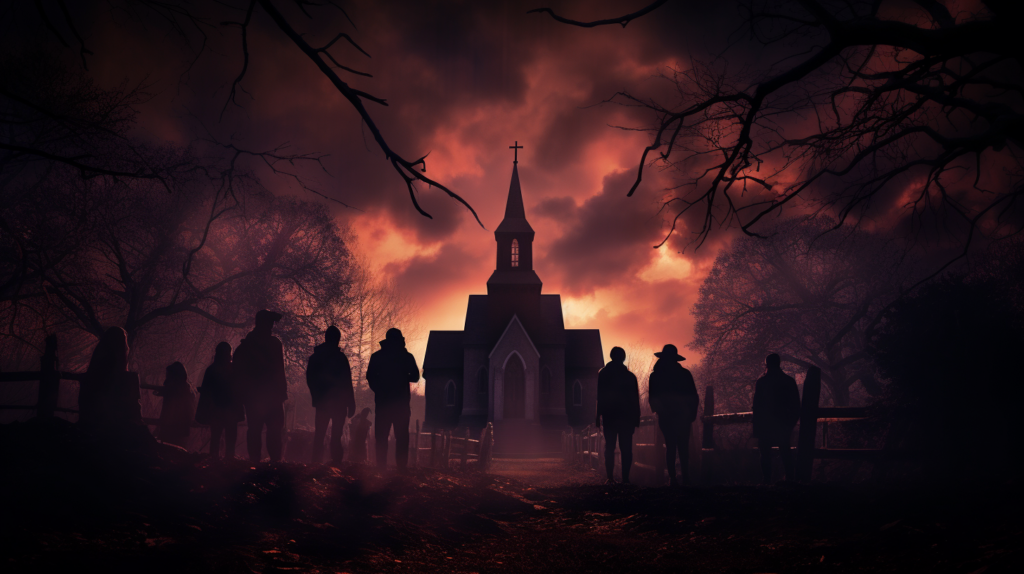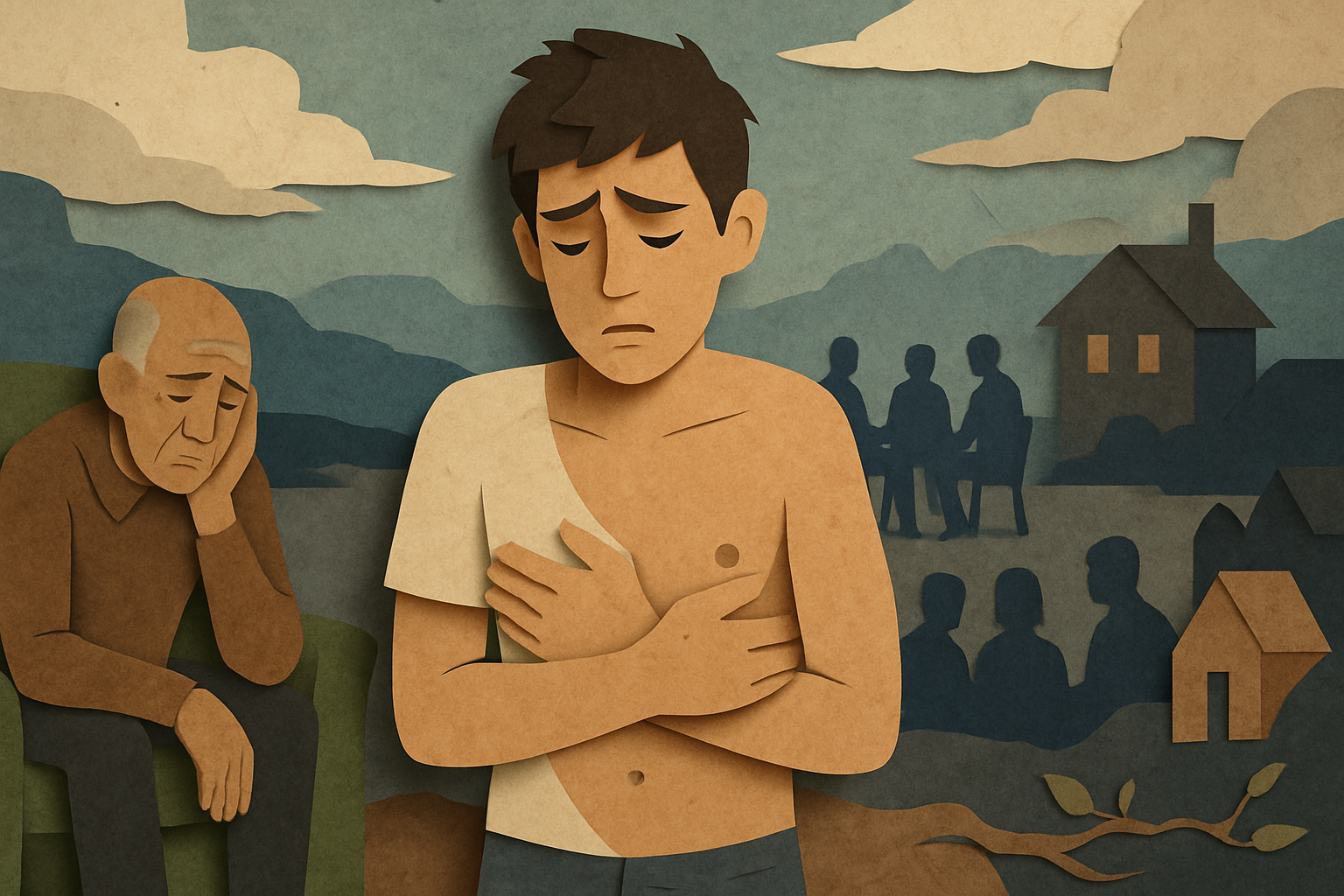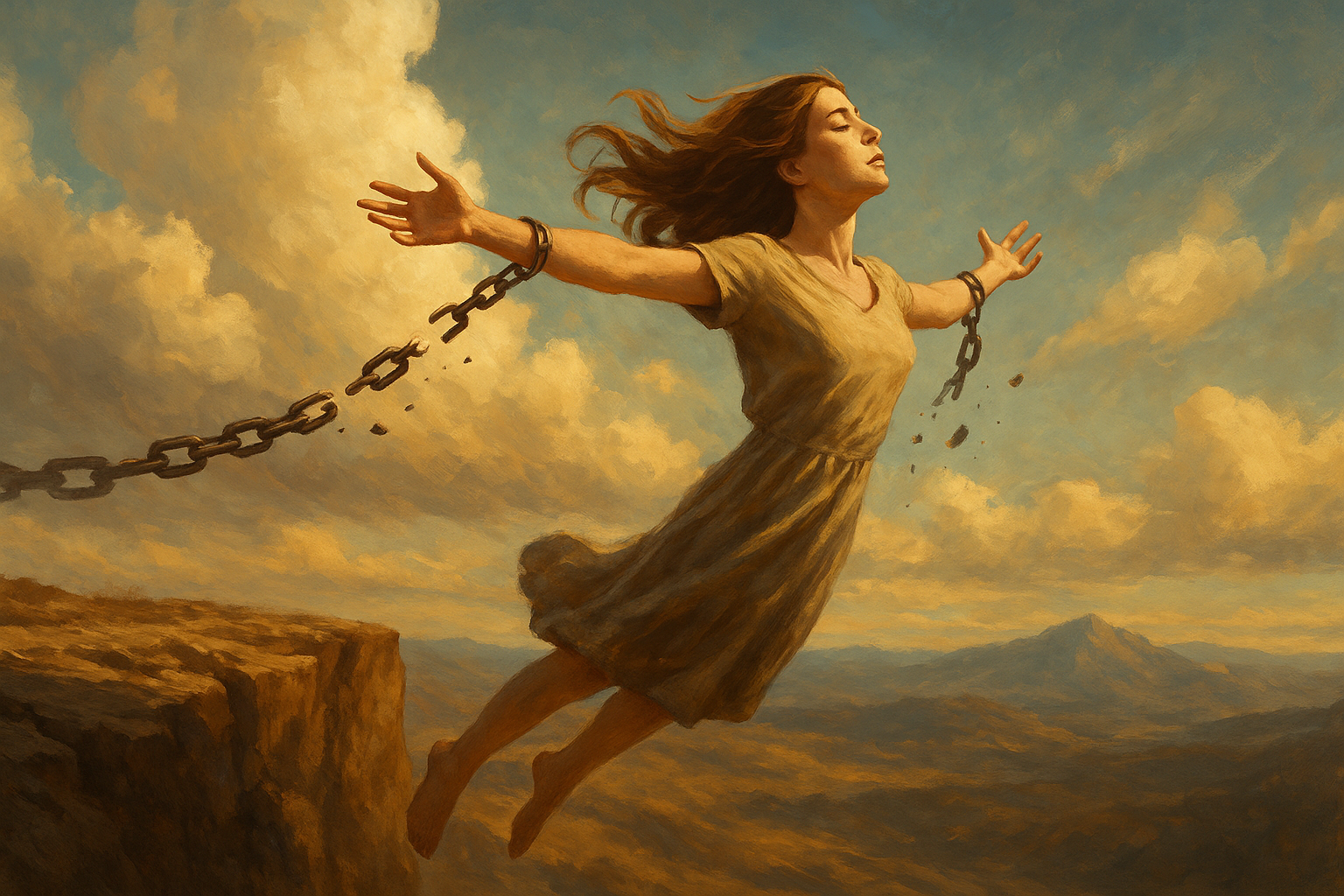READ IT TO ME: Click play to listen to this post.
I grew up in a family of 9 children and my parents raised my oldest sister’s 3, so essentially there were 12. My parents became religious—zealously so. Life revolved around the church. During all the meetings, projects, prayers, fasting, and evangelistic endeavors, we were on the front row. Everything was a distant second to attending whatever the people of the church were doing. If my parents were not in church, they were working their ass off. Dad always had 2-3 jobs and mom was the church janitor and cleaned offices and houses, all to keep their heads above water. It was the only way they knew to keep it all going at home. Of course, everyone worked. I got my first job at age 7 and bought my own school clothes from age 12 on. It was a necessity but also an escape from my mom picking out stuff I didn’t want to wear.
The church I attended was a cult. Every member of my family was abused by the church—all 14 family members. Apocalyptic obsession, “we were in/you were out” mentality, mind-altering trance, and funky theology of perfectionism fueled the other traits that make up a cult. As a kid, once you experienced all of that, the last thing you wanted your friends to know is that your family was entangled with all of this shit. So isolation became a lifestyle. Separated from everyday living created vulnerability and accessibility to the abuse doled out by the organizational hierarchy. In our family, the abuse included religious, physical, verbal, emotional, and sexual. Church leaders were considered God’s anointed so when confronted the plaintiff was accused of being the perpetrator, trying to stir up trouble for God’s anointed. When the pastor was outed for sexual abuse, members of the church reversed the accusation and attacked the children who were molested for defiling the pastor. A true cult? Oh yeah!
So what did I do as I grew up? I became one of them. James Baldwin once wrote “It’s not the world that was my oppressor, because what the world does to you, if the world does it to you long enough and effectively enough, you begin to do to yourself. You become a collaborator, an accomplice of your own murderers because you believe the same things they do.” So, what did I do, I became a pastor in the same sect with the same emphasis on religious abuse if not physical and sexual abuse. I became a zealot toward saving souls for Jesus just like my parents were, only yet more intense. I was ordained to uphold vows of selfless love toward others, self-sacrifice, and personal purity—always an emphasis upon purity! As clergy, whenever you met with the echelon leaders of the church during annual meetings, there was the piercing question “Do you believe and practice the doctrine of heart purity?” Of course, everybody innocently lied and said “Yes”. Many of us painstakingly tried to be pure with ridiculous results!
The apostle Paul had his moment of truth on the Damascus road with a blinding light. You can read about it in the New Testament. I had mine in a padded cell of a psychiatric ward in Denver, Colorado. After years of participating in a cult as a child and drinking the Koolaid of exclusivism, I pounded my Bible till my fists were bloodied in recognition that God had abandoned me and the church was never supportive and protective with any degree of reasonableness.
You would think that with this reality one would detach and move on with life. But, the tentacles of cultish doctrine entangled my life existence. It took another 8 years to unravel my soul from the underpinnings of cult belief and practice till I was able to free myself and seek other employment to feed my family.
For the next 27 years, I further distanced myself from the mentality and impact of cult living. It has been like living in the desert in a porous shack and trying to sweep all the sand out of your house. There is a continuous struggle with flashback recollections, relational experiences, and inner voices that trigger vivid memories as numerous as tiny grains of sand that constantly invade the caverns of my mind. As I age, there is less cultic sand in my mind and distorted grit in my mouth to grind. I anticipate some sand to always be present.
After over 30 years of ordination in cultic praxis, I decided to detach. Ordination involves an elaborate process and ceremony with you being anointed by the hierarchical leaders stating that you will follow the organizational beliefs, and practices in clergy duties and in everyday lifestyle. If you don’t, you can be defrocked. The list of those defrocked are many. However, if the church fails to reflect the same practice, essentially there is no accountability. The church can defrock the pastor for malfeasance but no one can defrock the church. I decided to do that.
I created a de-ordination ceremony in my backyard. I began with the Serenity Prayer. I included a Billy Talent video “Devil in a Midnight Mass” commemorating my sexual abuse. I read a sacred poem I wrote about lifelong shame entitled “Stalking the Lion King”. I read sacred writings written by Native Americans. I read emotion-focused letters, putting hierarchical abusers in an empty chair. Sometimes I gave them hell, Sometimes I cried. Sometimes I was emotionally indifferent. I read several inspirational, life-affirming poems, some written by me, some by others. I meditated on personal affirmations.
Then I conducted a burning ceremony where I burned the Creeds, my ordination papers, my earned theological degrees, and the book of rules and regulations called the “Church Manual”. I conducted a smudging ritual to remove the negative energy and burned sage to rid my space of undermining spirits.
I concluded by writing the abusive acts committed toward me and the community that I experienced by the church on small sticky notes and attached them to a wind lantern. I lit the wind lantern and watched the practices of human oppression perpetrated in my church experience float away. I wish to be gone forever but probably not. I do have a commitment to myself to no longer be my own oppressor that the church was to me that began in my youth.
So that is a piece of my story! What is yours? What can you learn from your story? Here are a few suggestions to consider:
1. There is personal healing power in every story—yours included. The greatest tool for healing is found in your personal story. Embrace it. Explore it. Be brave and allow the pain of your story to teach you what you need for healing. Carl Jung concluded that when derangement occurs, it is because the personal story has been denied or rejected. Healing and integration come when people discover or rediscover their personal story.
2. “Life is meant to be lived forward, yet is only understood backward”—Soren Kierkegaard. Plan for tomorrow. Live in the now. Understand through contemplation of yesterday. There is great insight from the past for those who are willing to courageously sift through the rubble of family and relational experiences. You are not your past experiences. You can transform your future by internalizing wisdom and brilliance that can only be found through the archaeology of past relational encounters. You don’t have to spend your life navel-gazing. Yet you learn so much about your future journey in life from yesterday’s weather report.
3. No one passes through childhood into adulthood unscathed. As a therapist, I sometimes hear patients tell me they had the perfect childhood. This always triggers suspicion. Folks are folks. Every parent makes mistakes. There is no perfect childhood environment. It is not helpful to poke and pick looking for excuses and blame. It is helpful to de-romanticize childhood and parents so that you can anchor yourself in your own adult parenting skills. In therapy, we distinguish big “T” traumas from small “t” traumas. You may not have experienced major traumatic issues as a child, and you may need help identifying the small “t” traumas that keep you stuck in your false self. Your false self is that which you want to be, wish were true but in reality isn’t. It becomes a way of seeing the world in distortion and false impression. Leaning into clarity of missed childhood needs, even from caring parents is an important part of your evolving story.
4. Detach from the hurt and embrace the healthy. Detachment is a process not an event. There were many personal steps I took before detaching from the unhealthy hierarchy of the church. Your rendezvous with detachment is unlikely to focus on the church. You will need to create your own journey. It may be circuitous but it will be personal, and if you go the distance you will create equanimity in your life and healing in your heart.
In The Secret Life of Bees, Sue Monk Kidd wrote “Stories have to be told or they die, and when they die, we can’t remember who we are or why we’re here.” Don’t let your life story remain untold. Allow it to lead you to personal healing and transformation. It is the reason you are here.





